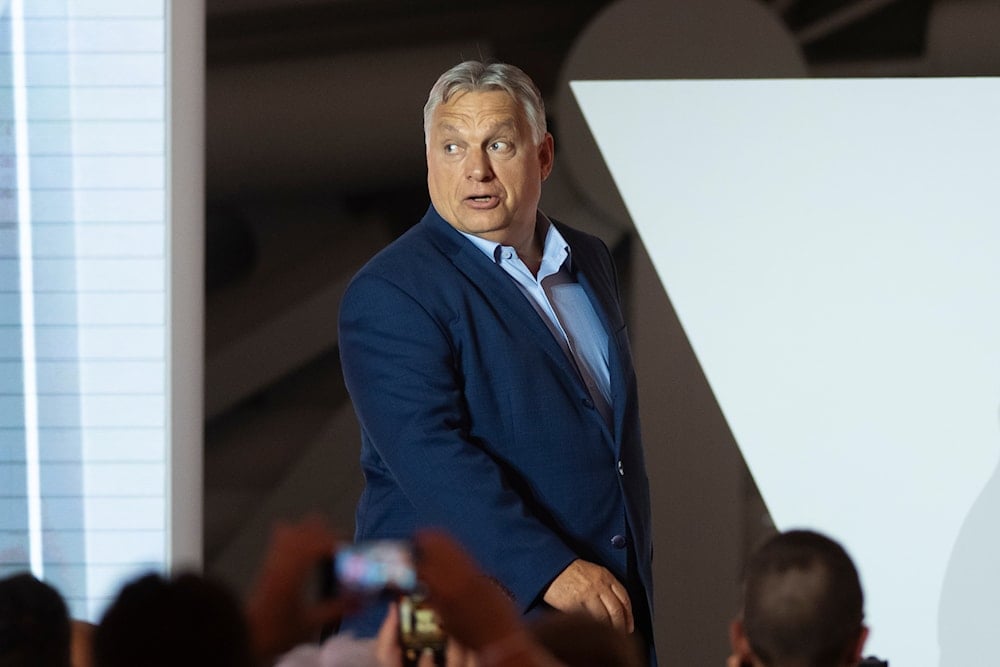EU group may kick out Hungary for refusing to aid Ukraine
Hungary's refusal to support joint statements for sending military aid to Ukraine against Russia is why the Bucharest Nine is considering this option.
-

Hungarian Prime Minister Viktor Orban arrives to address the media after receiving the results of the European Parliamentary elections in Budapest, Hungary, Monday, June 10, 2024. (AP)
The Bucharest Nine, a club of Eastern European and Baltic NATO nations, is contemplating kicking out Hungary for refusing to agree on the same policies toward Ukraine, according to the Financial Times, citing sources.
Founded in 2015, the club includes Bulgaria, the Czech Republic, Estonia, Hungary, Latvia, Lithuania, Poland, Romania, and Slovakia, and a gathering of its leaders is scheduled to take place in Riga, Latvia on Tuesday.
Hungary's refusal to support joint statements for sending military aid to Ukraine against Russia is the reason why the group is considering this option, insider sources told the Financial Times.
One of the people familiar with the situation told the newspaper: "We are likely meeting in this format for the last time,” labeling the discussions "very serious."
Hungary is reportedly also being contemplated for ostracization within the EU, where some members have called for suspending its voting rights, also due to its stance on Ukraine. Politico reported last week that Belgium believes the bloc's future may depend on it.
Read more: Deploying Western troops in Ukraine risks World War III: Hungary
Belgium's Foreign Minister Hadja Lahbib told Politico, "This is a moment of truth," adding, “If we go all the way with this mechanism, it must work. If it doesn’t work, we have to reform it. That’s the future of the European Union."
It is worth mentioning that Hungary is scheduled to take over the EU presidency in July.
Parting ways?
Despite Hungary's growing isolation within the alliance due to its stance on Ukraine, Hungarian Prime Minister Viktor Orban refuses to relent.
"It is as if everyone is already in a different future. They simply refuse to consider these arguments beyond a polite hearing... And war planning is going on."
Orban has said that Hungary previously declared this in advance and that they "do not want to participate in financial or armament support, not even within the framework of NATO. Therefore, our situation is a strange ‘we are there, but we are not’ situation. I don’t know how long this can be maintained."
Last month, Hungary, as confirmed by Foreign Minister Peter Szijjarto, rejected the EU's plan to hand member states two billion euros ($2.1 billion) for delivering weapons to Ukraine because Kiev has not provided guarantees that Hungarian companies would not be on "black list".
Belgium wants to give member countries 1.5 billion euros from the European Peace Fund for the weapons they supplied to Kiev, in addition to the 500 million euros in the European Union's macro-financial aid for Ukraine which Hungary has been blocking for almost a year.
Orban confirmed his intention to "redefine" the terms of NATO membership as a result of his opposition to aiding Ukraine.

 3 Min Read
3 Min Read








